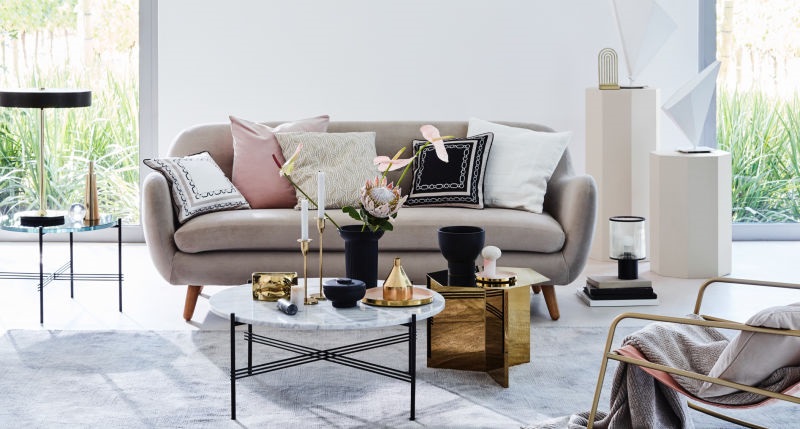Private practice
Recently there has been a proliferation of fast fashion retailers launching homewares ranges through private labels (i.e. products manufactured for sale under a retailer `own brand').
ASOS has expanded its homewares range by recruiting designers to develop its new homewares collection, featuring textiles, ceramics and hard goods. H&M's homewares range (seen above) was first launched in 2009, and it has just opened a flagship H&M HOME concept store on Regent's Street.
There are three main drivers behind this trend:
Growth in the rental population
With the demand and prices for property rising, young people are more likely to rent their homes. Given their limited ability to substantially change the look of their homes, renters are using homewares as an affordable, low effort, high impact way to style up their homes. Home owners are also choosing `blank canvas' styles and colours to give themselves the ability to easily change the look and feel of their homes using homewares and soft furnishings.
Social media
Consumers use sites such as Pinterest and Instagram to browse for inspiration, with influencers sharing the latest trends and ideas on fashionable interiors. It is now as commonplace for aesthetically pleasing interiors to be seen on social media as it is a new pair of shoes.
Purchasing
Consumers are now approaching the homewares category in the same way they buy their clothes: trend-oriented, impulsive and seasonal. This is beneficial for newcomers to the market as product aesthetic is more important than brand name. Consumers are increasingly looking to channel their own sense of style, not only in the way that they dress but through the way they express themselves in their home.
The greater focus on product rather than brand has led to the growth of private label ranges from non-homewares specialists. According to Euromonitor, the Home & Garden market share of specialist retailers declined from 57% in 2012 to 53% in 2017.
One benefit to fashion retailers of turning to private label is the potential synergies in manufacturing. Zara Home was launched in 2003 and leverages the manufacturing facilities of Zara's fashion ranges. This benefits Zara's product margin, since wholesale mark-ups are avoided.
Private label also allows retailers greater control of the product that is sold, enabling them to react to trends quickly by altering manufacturing and creating ranges that complement the existing offer. Anthropologie uses its understanding of customers' style to tailor its home ranges, which complement its clothing. The stores are designed so that customers feel as though they are stepping into a universe of the brand, with printed silk dresses found alongside ceramic displays.
`Fast' homewares are helping fashion brands transform into more holistic lifestyle propositions. As homewares are increasingly becoming trend-driven, fashion retailers can leverage their style credentials to address this emerging segment and capture a greater share of customers’ wallets.
Winners will be those who recognise this potential and can leverage existing resources and competencies to present a compelling assortment of ranges, whilst staying true to the essence of their brand.
Naveed Javaid

